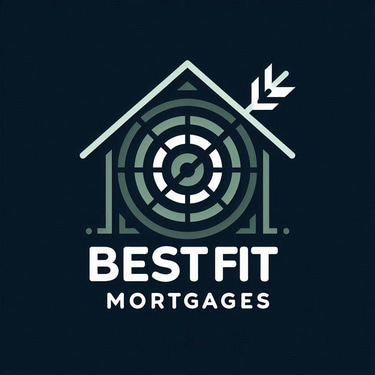Residential Mortgages
Unlock the door to your dream home with our expert mortgage guidance.


Here's a comprehensive look at the residential mortgage services we provide:
First-time buyers: We'll guide you through your first home purchase, explaining the process and helping you find the best mortgage for your needs.
Remortgages: If you're looking to switch lenders, get a better rate, or release equity from your home, we can help you navigate the remortgage process.
Home movers: Ready for a change? We'll assist you in securing a mortgage for your next property, whether you're upsizing, downsizing, or relocating.
Self-build: If you're dreaming of constructing your own home, we can help you secure the specialized mortgage needed for self-build projects.
Right to Buy: For council tenants looking to purchase their rented home, we can guide you through the Right to Buy scheme and help you secure the necessary mortgage.
Shared Ownership: We can assist with mortgages for shared ownership schemes, where you buy a portion of a property and rent the rest.
First Home Scheme: We'll help you navigate this government scheme designed to help first-time buyers and key workers purchase a home with a discount.
Consumer Buy to Let: If you're planning to rent out a property that you've previously lived in, we can help you switch to the appropriate mortgage.
Regulated Buy to Let: For those looking to rent a property to a close family member, we can assist with these specialized mortgages.
Complex cases: We excel in finding solutions for challenging situations, including: self-employed individuals, unusual properties, adverse credit histories, high net worth individuals, professional mortgages and more
Remember, the actual rate available will depend upon your circumstances. Ask for a personalised illustration.
At Best Fit Mortgages LTD, we're committed to finding the right mortgage solution for you, no matter how complex your situation might be. We'll guide you through the entire process, from initial application to completion, ensuring you understand your options every step of the way. Don't hesitate to reach out to us for personalized advice and to start your mortgage journey.
Free no obligation initial consultation
At Best Fit Mortgages LTD, we're experts in residential mortgages, offering a wide range of solutions to fit your unique situation. We work with over 180 lenders, giving you access to numerous options.
First Time Buyer?
We'll help you open the door to your new home, stress-free and easy!
How Much Can I Get for a Mortgage?
Click Your Ultimate Guide to discover exactly how much you can borrow—full details and expert tips await in our blog post!
The amount you can borrow for a mortgage depends on several things, such as:
How much you earn
Your credit score
If you're applying alone or with someone else
Knowing this amount, plus your savings for a down payment, helps you figure out what price range of homes you can afford.
Most lenders will offer you 4 to 5 times your yearly income, but this can vary. For the most accurate estimate based on your specific situation, it's best to talk to a mortgage advisor. We can give you a clear picture of what you might be able to borrow.
Down Payment for First-Time Buyers
The amount you need for a down payment depends on the price of the home you want. Typically, you'll need to put down at least 10% of the home's value.
Saving more for your down payment can be beneficial. It might help you get a lower interest rate and it reduces your loan-to-value ratio (LTV).
LTV is the percentage of the home's price you're borrowing. For example, if you buy a £100,000 home and put down £10,000 (10%), your LTV would be 90% (the part you're borrowing).
Remember, a bigger down payment means a lower LTV, which is often better for your mortgage terms.
Different Mortgage Types
Fixed Rate Mortgage - Your monthly payment stays the same for a set period, usually 2-5 years. This doesn't change even if interest rates do. After this period ends, you'll move to the lender's Standard Variable Rate unless you switch to a new deal. The SVR is often higher, so it's wise to look for a new offer when your fixed term ends.
Standard Variable Rate (SVR) - Mortgage This is the lender's basic mortgage option. The interest rate can change based on various factors, including the Bank of England's base rate. It's not typically the most competitive rate available.
Tracker Mortgage - This type follows the Bank of England's base rate. For example, if the base rate is 3.00% and the lender adds 1.5%, your rate would be 4.50%. If the base rate goes up to 4.00%, your rate would increase to 5.50%. Your payments can go up or down depending on how the base rate changes.
Understanding Mortgage Repayments
Different Ways to Repay While there are many mortgage options, they usually fall into two main categories: capital repayment and interest only.
Capital Repayment - With this type, your monthly payments cover both the interest and a portion of the property's value. By the end of your mortgage term, you'll have paid off the entire loan and fully own your home.
Interest Only - In this case, your monthly payments only cover the interest on the loan. At the end of the mortgage term, you'll still owe the full value of the property. People often pay this off by selling the house, though other repayment strategies exist.
Remortgage
We're here to help you find the best option. Let's discuss your needs and explore your remortgage possibilities.




Why Remortgage?
Remortgaging can offer several benefits:
Save money: By switching to a mortgage with a lower interest rate, you can reduce your monthly payments.
Release cash: Borrow against your home's value to fund home improvements, debt consolidation, or other expenses.
Improve your mortgage terms: Choose a different repayment plan or mortgage term that better suits your financial situation.
How much does it cost to remortgage?
The cost of remortgaging can vary depending on several factors, including:
Early Repayment Charges (ERCs)
Valuation fee
Legal fee
Arrangement fee
Broker fees
It's essential to compare the potential savings from remortgaging against these costs to determine if it's financially beneficial.
Moving Home
Juggling the sale of your current home and securing a mortgage for a new one can be stressful. Let us handle the mortgage process while you concentrate on moving.


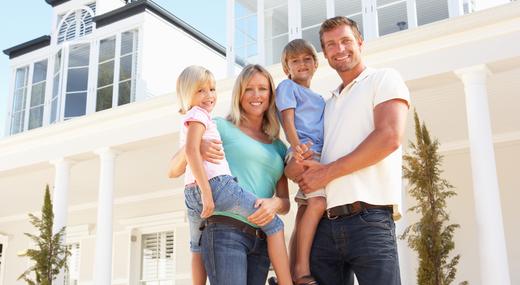

Understanding the Costs of Moving
Moving home involves more costs than just the property price. Several additional expenses can quickly add up.
Firstly, you'll likely need a deposit for your new home. While you can use equity from your current property, you'll often need to contribute additional funds. Typically, a deposit of at least 10% of the purchase price is required, although a larger deposit can secure better mortgage deals.
Beyond the deposit, there are various fees associated with buying a property:
Conveyancing fees: Legal costs for transferring ownership
Stamp Duty Land Tax (SDLT): A government tax based on the property's value
Land Registry fees: Government fees for registering ownership.
Valuation fees: The cost of assessing the property's value for the lender
It’s essential to budget for unexpected costs, as they can arise during the moving process. Having a financial cushion can help alleviate stress.
Want to know how much you can borrow for your next home?
Unlocking the potential of your move starts with understanding your borrowing power. Our mortgage experts can help you determine how much you can borrow based on your financial situation, including income, outgoings, and the equity in your current home.
We'll work with you to find the perfect mortgage deal and provide a free, no-obligation Agreement in Principle (AIP) to get you started.
Self-Build
A self-build mortgage empowers you to turn your dream home into reality. Unlike traditional mortgages for buying an existing property, a self-build mortgage provides funding to construct your home from the ground up. Even if you're a first-time builder, you can access this type of mortgage, making it accessible to a wide range of people.




What is self-build mortgage?
A self-build mortgage is a financial product designed to fund the construction of your own home. Whether you're transforming a barn, undertaking a major renovation, or building from scratch, there's a self-build mortgage to suit your project. Unlike standard mortgages, these loans are released in stages as your build progresses, offering flexibility and tailored options to match your specific needs. From short-term, interest-only deals to longer-term plans with early repayment flexibility, you can find a self-build mortgage to support your vision.
How Self Build Mortgages Work?
Self build mortgages are specialized loans for those creating their dream home from scratch. Unlike standard mortgages, they're designed to support the unique process of custom home construction.
The loan amount is based on your income and the projected value of your finished home, typically up to 80% of that value. What sets these mortgages apart is their staged funding approach:
Initial land purchase
Groundwork and foundations
Main structure construction
Exterior completion
Interior rough-in
Finish work
Final inspection and completion
This step-by-step funding aligns with your construction timeline, ensuring you have money when needed for each phase. It also allows lenders to monitor progress and manage risk.
Some lenders offer more flexible disbursement options, adapting to your specific project needs. An interesting feature is the potential for additional borrowing if your property value increases during construction, as determined by periodic valuations.
This structured approach not only helps you budget effectively but also provides lenders with the security they need to support your home-building journey.
What types of self-build mortgages are available?
Self-build mortgages come in two main varieties:
Stage Completion Mortgages These are more common. The lender releases funds after you complete each construction phase. This option suits those with significant cash reserves to cover upfront costs. You'll need to finance each stage yourself before receiving the mortgage funds.
Advance Payment Mortgages Here, you receive funds at the start of each building phase. This helps cover immediate costs for labor and materials, reducing the need for short-term loans. It's ideal if you have limited cash on hand. However, fewer lenders offer this type due to the higher risk involved.
Keep in mind that self-build mortgages typically have higher interest rates than standard home loans. This reflects the increased risk and complexity of financing a construction project rather than an existing property.
The choice between these options depends on your financial situation, cash flow needs, and risk tolerance. It's important to carefully consider which type aligns best with your project's requirements and your personal financial circumstances.
Right to Buy
Right to Buy is a government scheme that lets council and housing association tenants in England buy their home at a discounted price. The longer you've been a tenant, the bigger the discount. Owning your home can be a great way to build wealth, but it also means you're responsible for repairs and maintenance.
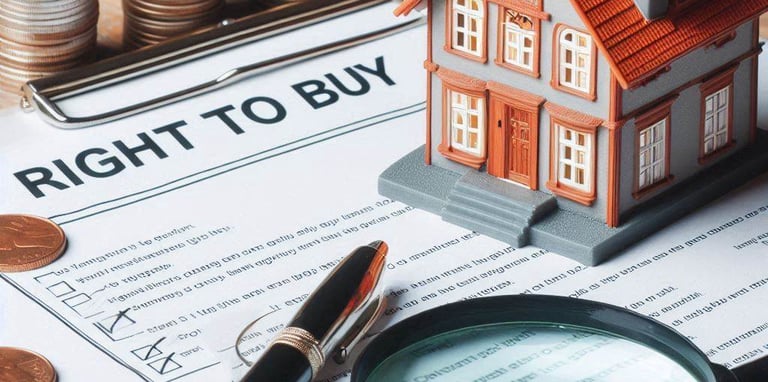



How Does a Right to Buy Mortgage Work?
Right to Buy allows eligible council or housing association tenants in England to purchase their home at a discount. The discount amount depends on several factors, including the type of property (house or flat) and how long you've been a social housing tenant.
Discount levels for houses and flats.
Houses - You get a 35% discount if you’ve been a public sector tenant for between 3 and 5 years.After 5 years, the discount goes up 1% for every extra year you’ve been a public sector tenant, up to a maximum of 70% or £102,400 across England and £136,400 in London boroughs (whichever is lower).
Flats - You get a 50% discount if you’ve been a public sector tenant for between 3 and 5 years.After 5 years, the discount goes up 2% for every extra year you’ve been a public sector tenant, up to a maximum of 70% or £102,400 across England and £136,400 in London boroughs (whichever is lower).
For the most accurate and current details, please visit the Government website.
Should I buy my council house?
Buying your council home is a big decision. Think about the good things: building your own wealth, having control over your home. But also consider the downsides: paying a mortgage, being responsible for repairs.
It's important to weigh up your options carefully. Need help deciding? Contact us today to see how we can help you make the right choice.
Shared Ownership
Shared Ownership is a part-buy, part-rent homeownership scheme. This means you purchase a share of your home (usually between 25% and 75%) and pay rent on the remaining share. Over time, you can buy additional shares (a process known as staircasing) until you own your home outright. Shared Ownership is designed to help people who can't afford to buy a property on the open market get onto the property ladder.
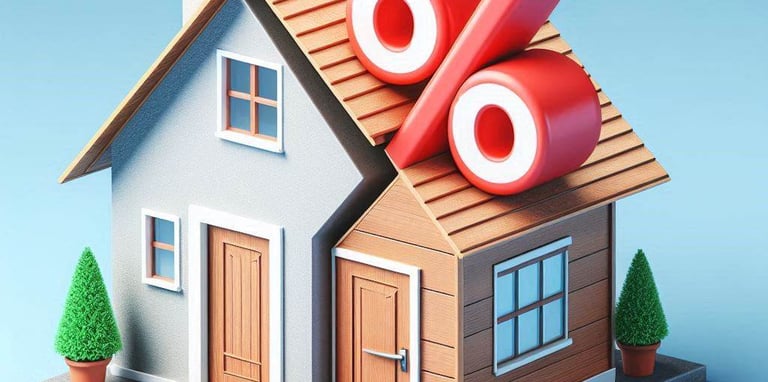



Is Shared Ownership right for me?
Shared Ownership can be a good option if you're looking to buy your own home but don't have a large enough deposit. It can also be suitable if you expect your income to increase over time, allowing you to staircase to full ownership. However, it's important to consider the ongoing costs, such as rent on the unsold share and potential service charges.
Not sure if Shared Ownership is the right choice?
Who Can Apply for Shared Ownership?
Shared Ownership is designed to help people who can't afford to buy a home outright. To be eligible, you generally need to:
Earn below a certain income: Your household income must be under £80,000 a year (or £90,000 in London).
Struggle to afford a full mortgage: You should be unable to buy a suitable home without the Shared Ownership scheme.
Additionally, you must fit into one of the following categories:
First-time buyer: You've never owned a home before.
Previous homeowner: You owned a home but can no longer afford to buy one.
New household: You're starting a new household, such as after a relationship breakdown.
Existing shared owner: You want to move to a different Shared Ownership property.
Homeowner looking to downsize: You own a home but can't afford a suitable property to move to.
Please note: Some Shared Ownership homes may have additional eligibility criteria, such as living or working in the local area.
For more details, visit the Government website.
First Homes Scheme
The First Homes scheme is a government initiative designed to help first-time buyers get on the property ladder. It involves new-build homes being sold at a significant discount, typically between 30% and 50% of the market value. This makes homeownership more affordable for those who might otherwise struggle to save for a deposit.




Who is eligible for the First Homes scheme?
To qualify for the First Homes scheme, you must be a first-time buyer who has never owned a property before. You and your partner (if applicable) must also have a combined annual household income of less than £80,000 (or £90,000 in London). The property must be your main residence, and you'll need a mortgage or purchase plan to cover at least 50% of the discounted price.
Are there any local rules for the First Homes scheme?
Yes, local councils can set additional rules for the First Homes scheme. These rules can vary between areas. For example, some councils might prioritize key workers, people who already live in the area, or those on lower incomes. It's important to check the specific eligibility criteria for the area where you want to buy.
However, there are some exceptions. Members of the armed forces and their families are exempt from local eligibility rules. This includes current and former service personnel, as well as spouses, civil partners, and widows/widowers of those who died while serving.
For more information, visit the Government website.
How much can I save with the First Homes scheme?
The First Homes scheme offers a significant discount on new-build properties. The discount typically ranges from 30% to 50% of the market value. This means you could save tens of thousands of pounds on the purchase price of your home. Additionally, because the discount is a permanent feature of the property, it benefits future buyers as well.
Need help navigating the First Homes scheme?
Consumer Buy-to-Let
A Consumer Buy-to-Let mortgage is for those who unintentionally became landlords, such as those inheriting a property or relocating for work and needing to rent out their previous home.




What is a Consumer Buy-to-Let mortgage?
A Consumer Buy-to-Let (CBTL) mortgage is designed for people who have unexpectedly become landlords. This could be due to inheriting a property, relocating, or other unforeseen circumstances. Unlike traditional buy-to-let mortgages, CBTL focuses on the borrower's financial situation rather than relying solely on rental income.
Who can get a Consumer Buy-to-Let mortgage?
Anyone who finds themselves in a situation where they need to rent out their property but didn't plan to be a landlord can apply for a CBTL mortgage. This includes people who have inherited a property, those who have moved in with a partner, or individuals who need to rent out their home temporarily due to relocation.
What are the potential challenges of a Consumer Buy-to-Let mortgage?
While Consumer Buy-to-Let mortgages offer advantages, there are potential challenges. One common issue is that rental income might not fully cover the mortgage payments, resulting in additional out-of-pocket expenses. Additionally, property maintenance and management responsibilities can be time-consuming and costly. It's essential to carefully consider these factors before deciding on a CBTL mortgage.
Facing the challenges of becoming an accidental landlord? Contact us for tailored advice and competitive mortgage options.
Regulated Buy-to-Let
A regulated buy-to-let mortgage is a specific type of mortgage, overseen by the Financial Conduct Authority, used when renting property to close family members or when the borrower occupies less than 40% of the property, offering more consumer protections than standard buy-to-let mortgages.
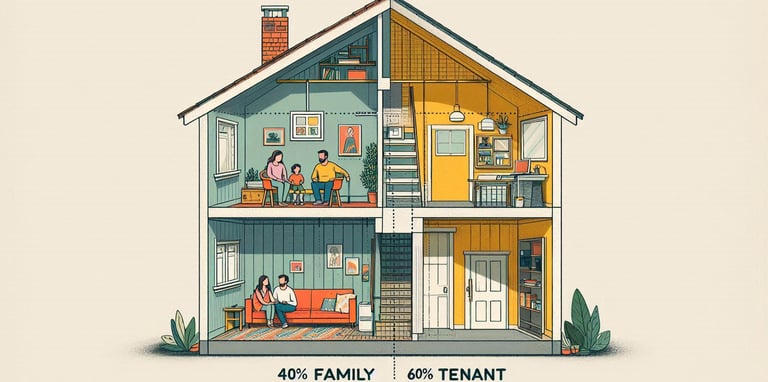



What is a regulated buy-to-let mortgage?
A regulated buy-to-let mortgage is one where the property will be occupied by the borrower or a close family member for at least 40% of the total floor area. These mortgages are regulated by the Financial Conduct Authority (FCA) and offer more consumer protections than standard buy-to-let mortgages.
Who qualifies as a close family member for a regulated buy-to-let?
Close family members typically include parents, grandparents, children, grandchildren, and siblings. Spouses and civil partners are also usually included in this category.
How do regulated buy-to-let mortgages differ from standard buy-to-let mortgages?
Regulated buy-to-let mortgages are subject to stricter lending criteria and offer more consumer protections. They're assessed more like residential mortgages, considering the borrower's income and expenditure, rather than just the potential rental income of the property.
Can I switch from a regulated buy-to-let to a standard buy-to-let mortgage?
If your situation changes, you may need to switch to a standard buy-to-let mortgage.
Ready to explore your options?
BEST FIT MORTGAGES LTD
T: 01744411604
E: contact@bestfitmortgages.co.uk
Your property may be repossessed if you do not keep up repayments on your mortgage or loans secured on it.
Best Fit Mortgages LTD Registered office address: 60 Chiltern Road, St. Helens, England, WA9 2HT. Registered in England and Wales No: 15722235
Making a complaint: It is our intention to provide you with a high level of customer service at all times. If there is an occasion when we do not meet these standards and you wish to register a complaint, please write to: Compliance Department; Connect IFA Ltd, 39 Station Lane, Hornchurch, RM12 6JL or call: 01708 676110. If you cannot settle your complaint with us, you may be entitled to refer it to the Financial Ombudsman Service www.financial-ombudsman.org.uk
Best Fit Mortgages LTD is an Appointed Representative of Connect IFA Limited 441505 which is Authorised and Regulated by the Financial Conduct Authority and is entered on the Financial Services Register under reference 1017669. The FCA do not regulate some forms of Business Buy to Let Mortgages and Commercial Mortgages to Limited Companies. A fee will be payable for arranging your mortgage. Your consultant will confirm the amount before you choose to proceed, but this is typically 0.5% of the mortgage balance, e.g. £500 for a mortgage of £100000. The guidance and/or advice contained within this website is subject to the UK regulatory regime and is therefore primarily targeted at consumers based in the UK.
© 2024. All rights reserved.
Commission disclosure: We are a credit broker and not a lender. We have access to an extensive range of lenders. Once we have assessed your needs, we will recommend a lender(s) that provides suitable products to meet your personal circumstances and requirements, though you are not obliged to take our advice or recommendation. Whichever lender we introduce you to, we will typically receive commission from them after completion of the transaction. The amount of commission we receive will normally be a fixed percentage of the amount you borrow from the lender. Commission paid to us may vary in amount depending on the lender and product. The lenders we work with pay commission at different rates. However, the amount of commission that we receive from a lender does not have an effect on the amount that you pay to that lender under your credit agreement.
Not all services we offer are covered by the FCA.
